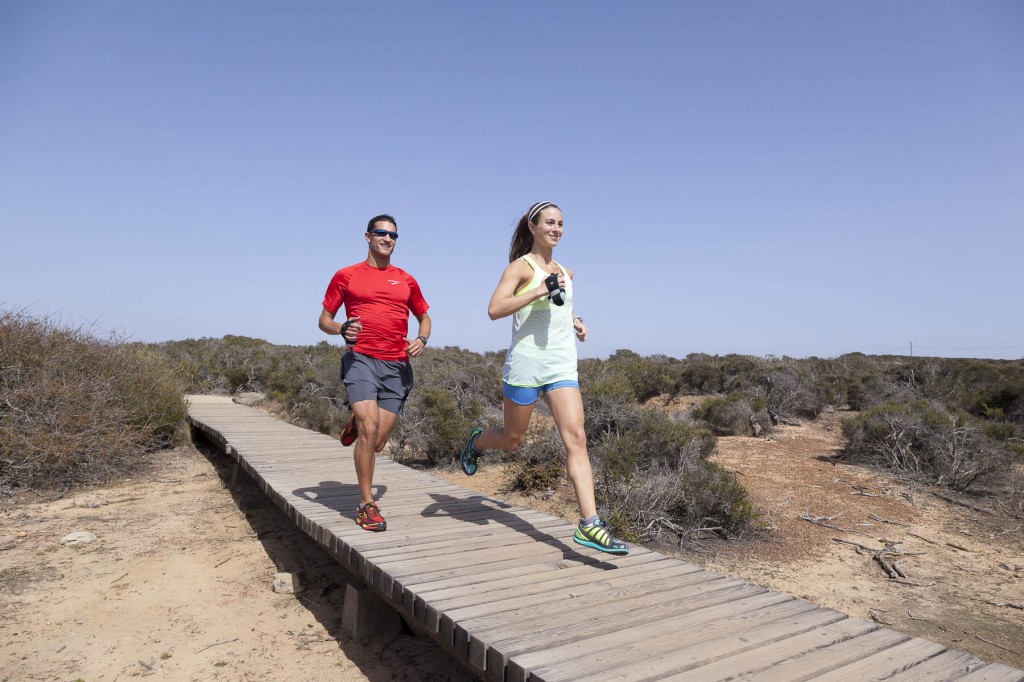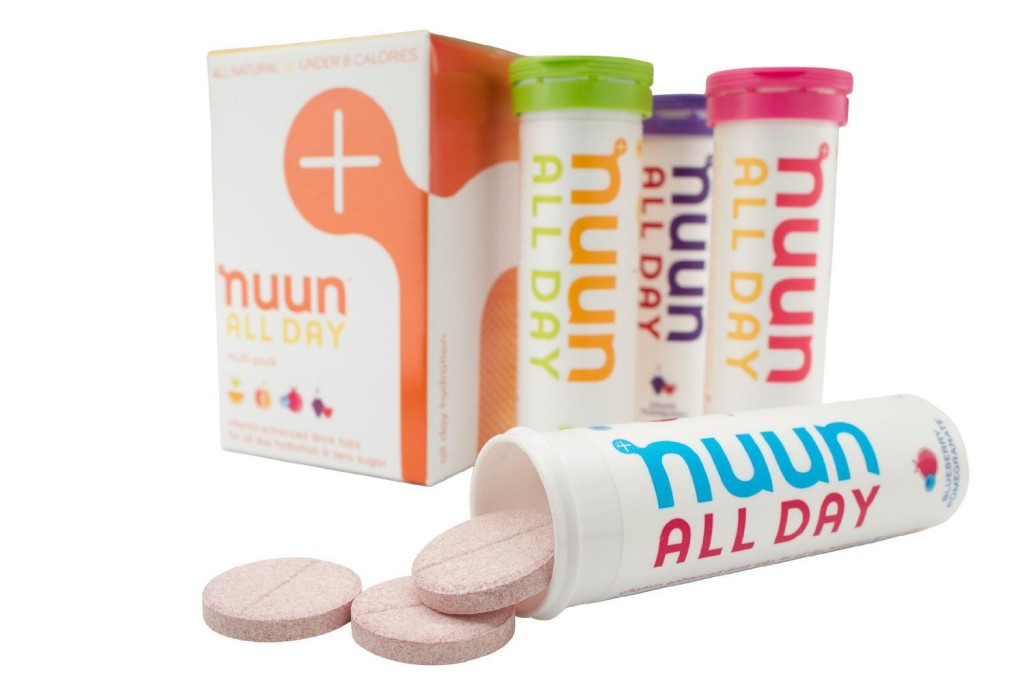Sweating the Small Stuff: Electrolytes
Why are electrolytes important to runners, getting electrolytes back after a workout, drinking electrolytes after track, cross country and importance of electrolytes
By Nuun Guest Blogger Jesse Kropelnicki of The Core Diet.
Even if you have never had a “cramping problem” in the past, neglecting electrolytes in training and racing could be compromising your results. Just like you wouldn’t wait until you were dehydrated to drink fluids, waiting until that first “cramp” is a signal from your body that your performance has been suffering for quite some time. Electrolytes play a crucial role in muscle function, adequate hydration status and digestion fluids during racing.
What is an electrolyte?
In medical or scientific terms, an electrolyte is “any compound that, in solution or in molten form, conducts electricity and is decomposed (electrolyzed) by it. It is an ionizable substance in solution.”
In other words, it’s a term for minerals that, when dissolved in water, break into positive or negative electrically-charged ions (anions or cations).
What are the functions of electrolytes?
These ions carry electrical energy necessary for many functions in the human body, and optimal athletic performance requires adequate (and a consistent) supply of electrolytes. These ions move across membranes carrying fluids, nutrients and water. They aid in a number of processes that are important to an athlete:
Regulation of body fluids
Muscle contraction (including the heart)
Transmission of nerve impulses
However, repeated days of moderate or severe sweating can result in such substantial electrolyte loss, particularly sodium because of its high concentration of this mineral in sweat. When electrolytes are lost too quickly, the body does not have the ability to restore them as rapidly as they were lost. In these situations, dietary mineral intake is generally not sufficient to compensate for these large losses, and supplementation is needed to replace these electrolytes in order to maintain concentrations of body fluids.
What are the major electrolytes in the body and what do they do?
Sodium (Na+) – regulates total amount of water in the body
Potassium (K+) – regulates heartbeat and muscle function
Magnesium (Mg2+) – aids in muscle relaxation
Calcium (Ca2+) – aids in muscle contraction
Chloride (Cl-) – helps maintain a normal balance of body fluids
How are electrolytes lost?
Electrolytes are lost through urine and sweat. Endurance athletes can lose large volumes of sweat on a daily basis, which is accompanied by a similarly large electrolyte loss. Each athlete has different electrolyte (and fluid) needs and environmental conditions of training and racing will factor into this.
Average sweat rate is typically 1 – 1.5L of fluid per hour (32 – 48 oz.) and 1,000 – 1,500 mg of sodium per hour while running (a bit less when cycling).
Most people’s sweat contains about 500mg of sodium per 16oz. Very salty sweaters can have up to about 1,500 mg per 16 oz. of sweat. Sweat rate will depend on several factors including environmental conditions (temperature, humidity), genetics and the athletic fitness of the athlete.
Side Effects of Dehydration
In most cases, muscle cramping is related to either sodium or magnesium deficiency in athletes. If a deficiency occurs, cramps, tremors and spasm can be present. It is the Core Diet’s experience that acute occurrence of cramps during racing is typically due to sodium loss, and more chronic cramping (even between activity, during swimming or while sleeping) is typically due to magnesium deficiency. Another sign of sodium related cramping is a sloshy stomach. Another electrolyte, magnesium, is key in avoiding muscle spasms. A muscle “twitch” is usually a sign of low magnesium levels. Having proper sodium balance during digestion is important to fluid absorption.
Have you ever felt tingling fingers during your racing? If you have, you probably are experiencing a potassium deficiency. Many times a simple half banana available on many race courses can fix this problem before it impacts race performance.
How to replenish electrolytes?
Electrolytes help to increase the absorption of fluids into the bloodstream, and your muscular system operates efficiently which is why the best hydration plan is one that includes these minerals. Using products such as Nuun Active Hydration (electrolyte-enhanced drink tablets) before, during, and after workouts can go a long way to replenish electrolytes and achieve your best performance.
————–
About Nuun
Nuun is a great tasting on-the-go hydration tablet with the electrolytes you need to hydrate and re-fuel, but none of the sugar and junk found in sugary sports drinks. Nuun is available in over 5,000 stores in the U.S. and in over 30 countries. Visit nuun.com to learn more.
Jesse Kropelnicki is an elite triathlon coach and founder of TheCoreDiet.com, a leading provider of sports nutrition. He coaches professional triathletes Caitlin Snow, Ethan Brown, and Pedro Gomes with quantitative training and nutrition protocols. Track Jesse’s coaching strategies tips on his blog at kropelnicki.com.
Jaime Windrow is a Registered Dietitian and the Nutrition Programs Director at TheCoreDiet.com. Jaime’s interest in sports nutrition began when she danced professionally for 12 years with the Radio City Rockettes, and continued when she began to race in triathlons as an elite amateur. Jamie holds a number of age-group wins and podium finishes, as well as a finish in Kona at the Ironman World Championships.


